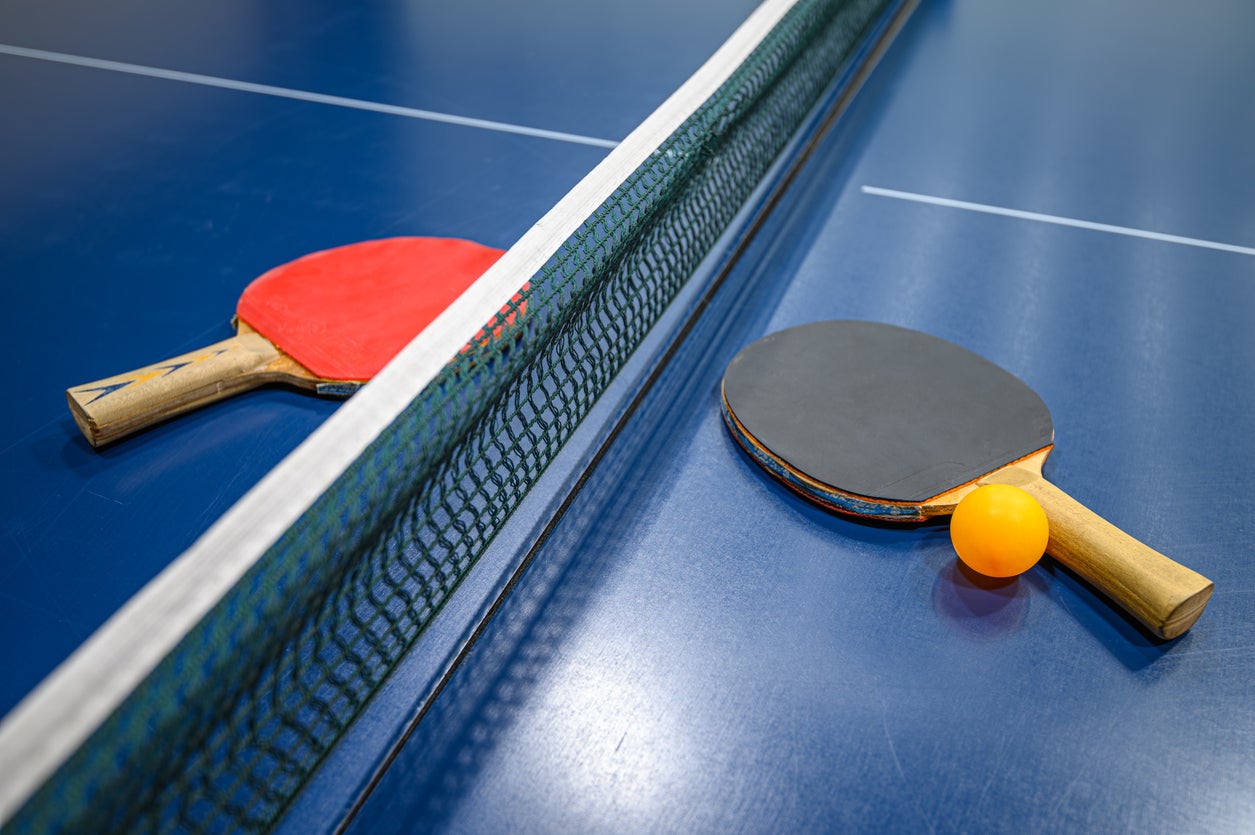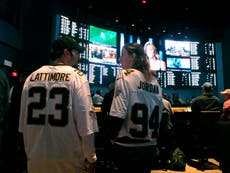I entered the strange world of eastern European local table tennis during lockdown – I wouldn’t recommend it
Unlikely as it might sound, betting on table tennis has exploded this year because of the pandemic. But how legitimate are the matches? And can you make a profit?


Your support helps us to tell the story
From reproductive rights to climate change to Big Tech, The Independent is on the ground when the story is developing. Whether it's investigating the financials of Elon Musk's pro-Trump PAC or producing our latest documentary, 'The A Word', which shines a light on the American women fighting for reproductive rights, we know how important it is to parse out the facts from the messaging.
At such a critical moment in US history, we need reporters on the ground. Your donation allows us to keep sending journalists to speak to both sides of the story.
The Independent is trusted by Americans across the entire political spectrum. And unlike many other quality news outlets, we choose not to lock Americans out of our reporting and analysis with paywalls. We believe quality journalism should be available to everyone, paid for by those who can afford it.
Your support makes all the difference.It’s way past midnight and I really need to go to bed but, somewhere in Ukraine, there is a table tennis match I want to watch. Oleksandr Gomilko is playing Igor Trydukh and I feel sure I am onto a winner.
Warren Buffett plays the stock market; I play the Setka Cup (for very small amounts, I admit). Unlike the stock market, though, the Setka Cup never stops. Once Trydukh has done the business, there are matches at roughly 15 minute intervals right through the night and into the next day. Mikhail Zholubak plays Volodymyr Lutskii at 5.25am – well worth setting the alarm for that one.
Unlikely as it might sound, betting on table tennis has exploded this year. When many sports, including horse racing and football, were forced to stop because of the pandemic, bookmakers had to be inventive, offering alternative markets for people to bet on. It was around this time in the spring that people started to notice a sharp uptick in the number of table tennis markets available. A thread on Reddit appeared, titled: “Does anyone else here bet on Russian table tennis?” Turns out they do. Quite a few of them. I decided to find out what it’s all about.
On any given day, there are hundreds and hundreds of table tennis matches taking place – and nearly all of them in eastern Europe. If you’re not having much luck in the Setka Cup, you can always try the Moscow Liga Pro, which is made up of about 40 players, grinding out match after match in chilly-looking sports halls.
US bookmakers have reported taking hundreds of thousands of dollars in bets every day on table tennis since the pandemic started. “The matches don’t take long to finish and since there are so many to parlay, people seem to really enjoy it,” says Nick Bogdanovich, William Hill’s US director of trading. “It’s exceeded my expectations by a thousand times. I’m shocked – and pleasantly so.”
But here’s the interesting thing. Despite odds being offered by a number of the major bookmakers, no one seems to have much information about these matches or why they are taking place. A spokesperson for the International Table Tennis Federation (ITTF) told Forbes that “these events are in no way linked to the ITTF”, adding that “we don’t know too much about their activities, so we are not in a position to comment”. Similarly, a spokesperson for the Table Tennis Federation of Russia told ESPN that the Moscow Liga Pro does not come under its jurisdiction. Google the names of the players and all you get is links to betting sites.
Fears that this is all a bit amateurish are not allayed by visiting the official Setka Cup website, which states that the tournaments, in which the competitors often play five “best-of-five” matches in 24 hours, are put on as a way of “improving the sports skills of participants”. And perhaps their fitness, too. Tune into a match and you are very likely to see, with bats in hand, two portly men who, in recent years, appear to have had more interest in the table than the tennis.
Can we be sure, then, that these non-professionals are giving it their all? We can, apparently. “If there is a suspicion of a player’s violation of the tournament rules (including the lack of an aspiration to win),” the website reads, “the player may be asked to take a polygraph test [lie detector] with questions regarding participation in the Setka Cup series tournaments.”
None of this, I hasten to add, put me off, in the interests of research, betting on the outcome of some of these matches. Or rather, the outcome of individual points or sets. What I didn’t mention is that I have been working on a system – and systems, as any punter worth their chips will tell you, are not just about matches won and lost. It is what happens in the winning and the losing that really matters.
So here’s how it works. In table tennis, the momentum of a set (first to 11; player must win by two clear points) can change extraordinarily quickly, since the points are rapid-fire. As a result, the odds are volatile. In the space of 45 seconds and two or three points, the pendulum can swing violently – along with the odds.
You are looking for matches where the players are similarly priced, ie both have a reasonable chance of winning. Over the course of a five-set match, it is highly probable that the odds of both players will fluctuate wildly, as favouritism switches back and forth, so you just watch – bet, cash out, repeat – and cream off the very small profit. Simple, I know, but Michael Lewis has written books about less.
At this point, you would be forgiven for wondering why I am revealing the system. Why not just give up writing articles and watch table tennis all day? Well... betting on sport can be cruel and betting on an amateur, possibly unregulated, sport in which you haven’t heard of a single player, let alone studied their form, can be even crueller.
I thought the system, finally, was perfected and that the time had come to start staking larger amounts and winning big. Just to be sure, though – and also so I had a record for the inevitable book deal – I decided to put all the numbers into a spreadsheet. And here’s the thing. After three months, it transpires that I am… nine quid down? That can’t be right. Just run the numbers again. No... I think it is right, actually. The gains, you see, are so small (8p on one memorable occasion) that a single slip up – an unexpectedly one-sided encounter – can wipe out all those little wins. It’s almost like the bookmakers are better at this than I am.
There are, of course, lessons to be learnt here. Lessons that no amount of winnings could compensate for. Firstly, in sports betting, as in life, nothing good happens after 2am. Secondly, systems are best left to those with more than a B in GCSE maths.
Thirdly, and perhaps most importantly, I hope you’ll remember this: if the sun is shining, or even if it’s not, and you find yourself watching table tennis in Ukraine, take a deep breath and go outside. Please.



Join our commenting forum
Join thought-provoking conversations, follow other Independent readers and see their replies
Comments